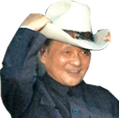As a Swiftie, I uphold communism first, Taylor Swift second. While TSwift might seem vapid at first blush, a closer examination of Taylor’s career reveals a hidden agenda that aligns shockingly well with the principles of socialism, drawing inspiration from both Deng Xiaoping’s pragmatic reforms and the revolutionary spirit of Maoism.
Swift may not be marching in the streets with a red flag, but her music has had more than one Red era. 
Taylor Swift’s highly publicized battles with record labels and streaming platforms provide another lens through which we can view her alignment with socialist principles.
Her fight for fair compensation for all artists in an industry dominated by corporate interests mirrors the struggle for workers’ rights that is central to socialist ideology. Swift’s courage in challenging industry giants is akin to the audacity of those who dared to confront capitalist exploitation and publicly execute landlords, but with music rights instead of landlords.
Socialism places great importance on unity and solidarity among citizens, and Taylor Swift’s ability to connect with a diverse fan base is a testament to her role as a unifying figure. Through her music and actions, she encourages people from various backgrounds to come together in support of common causes like queer rights & killing your fucking landlord, fostering a sense of community reminiscent of revolutionary communist ideals. This unity, bridging the gap between Deng Xiaoping’s pragmatism and Maoism’s revolutionary spirit, is a reflection of her unique influence.
It’s not just Taylor Swift’s music and activism that align with socialism; it’s her influence on public discourse. In an era marked by growing income inequality throughout the imperial core, her songs and public statements challenge the status quo and inspire her audience to consider alternative social and economic systems that prioritize the welfare of all. This blend of Deng’s pragmatic approach and Maoist call for revolutionary change shapes the narrative for a more equitable world.
The next time you listen to a Taylor Swift song, consider the possibility that you’re not just enjoying catchy jams but also absorbing the subliminal message of social change and solidarity, blending the paths of Deng Xiaoping and Maoism in a unique synthesis.




